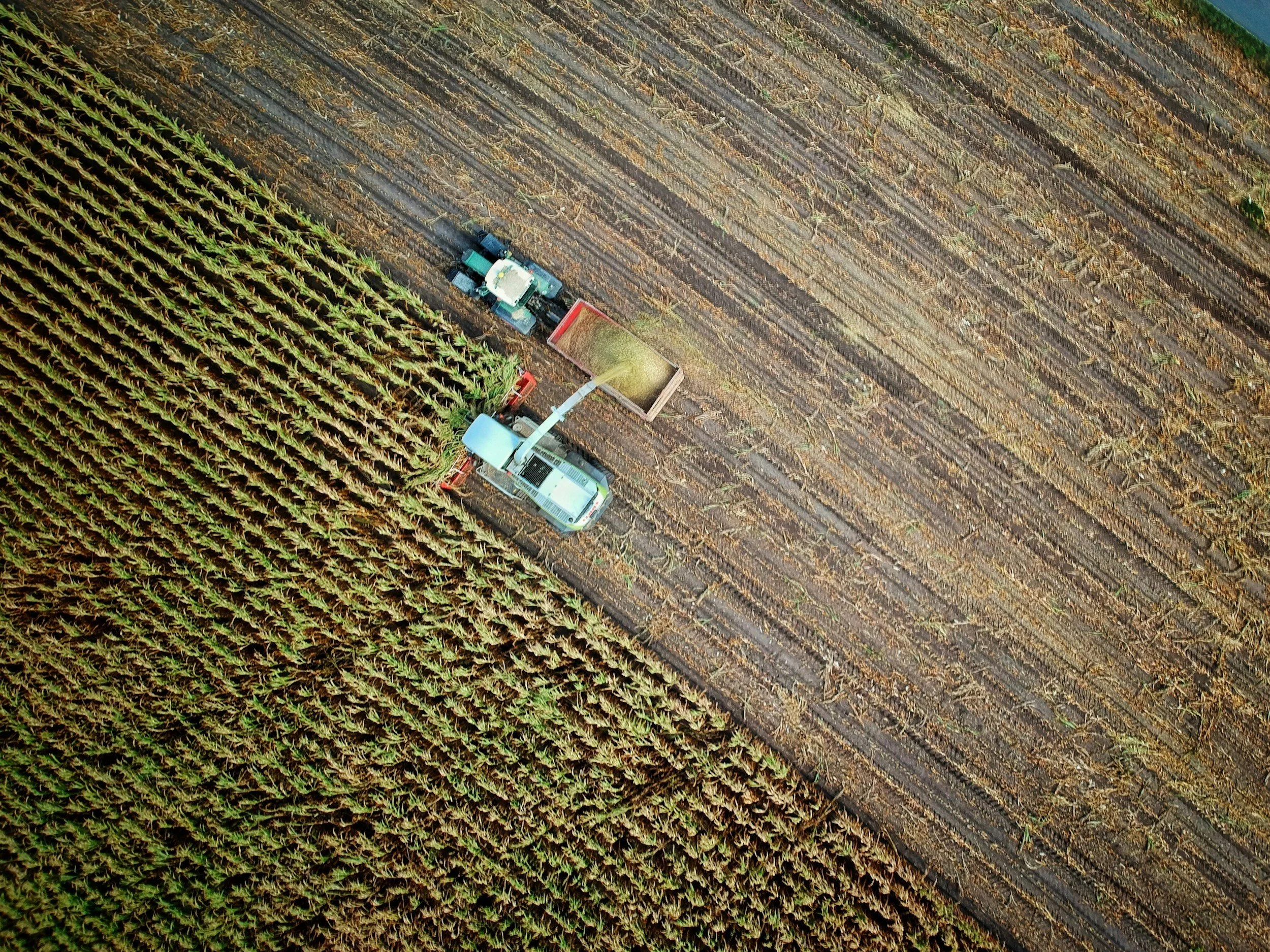Don’t Wait for Wheat – Actual Production History Yield Exclusion Included in the 2014 Farm Bill
By: Rebecca Price, Staff Member
Drought that plagued Oklahoma farmers in 2010 continues to affect wheat production today. In 2013-14, wheat crops harvested a yield of 17 bushels per acre, a major decrease from 31 bushels per acre in 2012-13.[i] Oklahoma’s drought conditions are worsening; in September 2014 communities recorded a 1.26-inch to 2-inch reduction in rainfall from previous years.[ii] Lack of rain reduces wheat yields, which is both a cash and insurance problem.[iii] Crop production determines farmers’ eligibility for crop insurance and decreasing yields cause a reduction in insurance coverage.[iv]
Farmers lobbied for the Actual Production History (APH) Yield Exclusion provision in the 2014 Farm Bill. The provision allows drought and disaster affected growers to adjust crop production yields for up to six years if an average planted acre of a crop harvested a yield less than fifty percent of the county’s ten year yield average.[v] Representative Frank Lucas, chair of the House Agriculture Committee and author of the 2014 Farm Bill, recognized the need to relieve his fellow Oklahomans and growers around the country. He publicly prioritized amending the Farm Bill to extend insurance coverage to crop yields from spring 2015 by declaring the provision imperative for farmers facing drought because it is “the difference between having a viable crop insurance for the coming year or not.”[vi]
On October 21, 2014, Agriculture Secretary Tom Vilsack announced that the 2014 Farm Bill included the APH Yield Exclusion and growers affected by drought and disaster would receive insurance relief with crop yields in spring 2015 for select spring crops: corn, soybeans, wheat, cotton, grain sorghum, rice, barley, canola, sunflowers, peanuts, and popcorn.[vii] Vilsack reported this initiative is part of the United States Department of Agriculture’s “commitment to help rural communities grow” by offering growers financial security in the face of drought and disaster and allowing American consumers to enjoy safe, reasonably priced food.[viii] The APH Yield Exclusion maintains farmers’ insurance coverage but will likely result in higher premiums for participating farmers.[ix]
The legacy of the APH Yield Exclusion remains unclear. The Oklahoma Wheat Growers Association reports that members are disappointed with the USDA’s exclusion of fall crops in the APH Yield Exclusion Provision. Wheat growers believed that fall crops should have been included in the provision. The Association may push further litigation depending upon the 2014-15 wheat yield.[x] Also, the lasting political viability of this provision is unknown. Future chairman of the House Agriculture Committee, Representative Mike Conaway, is ready to begin working on the 2019 Farm Bill by doing a “soup-to-nuts” review of the 2014 Farm Bill and determining what is effective and what is ineffective.[xi] Depending upon its success of the APH Yield Provision, it may not find a permanent home in American farm legislation. The immediate wait for wheat insurance is over, however the future of the insurance adjustment is uncertain.
[i] Chris Clayton, Wheat growers to seek inclusion in APH Yield Exclusion for 2015 – DTN, AGFacts.com (Oct. 21, 2014), http://agfax.com/2014/10/21/wheat-growers-seek-inclusion-aph-yield-exclusion-2015-dtn/#sthash.KT2fzOHc.dpuf.
[ii] Silas Allen, Oklahoma wheat farmers call on federal agriculture officials to enact drought relief policy, NewsOK (Oct. 9, 2014, 3:49 PM), http://newsok.com/oklahoma-wheat-farmers-call-on-federal-agriculture-officials-to-enact-drought-relief-policy/article/5349858/?page=2.
[iii] Oklahoma wheat farmers seek drought loss relief from USDA, Insurance Journal (Oct. 13, 2014), http://www.insurancejournal.com/news/southcentral/2014/10/13/343358.htm.
[iv] Id.
[v] Allen, supra note 2.
[vi] Id.; Clayton, supra note 1.
[vii]USDA to launch new farm bill program to help provide relief to farmers affected by severe weather, United States Department of Agriculture (Oct. 21, 2014), http://www.usda.gov/wps/portal/usda/usdahome?contentid=2014/10/0233.xml&navid=NEWS_RELEASE&navtype=RT&parentnav=LATEST_RELEASES&edeployment_action=retrievecontent.
[viii] Id.
[ix] Clayton, supra note 1.
[x] Keith Good, Farm bill; ag economy; and, regulations, FarmPolicy.com (Oct. 22, 2014, 4:06 AM), http://farmpolicy.com/2014/10/22/farm-bill-ag-economy-and-regulations-wednesday/.
[xi] Bill Tomson, Conaway: ready to work on next farm bill, immigration, POLITICO (Nov. 19, 2014, 7:36 PM), http://www.politico.com/story/2014/11/conaway-ready-to-work-on-next-farm-bill-immigration-113023.html.







